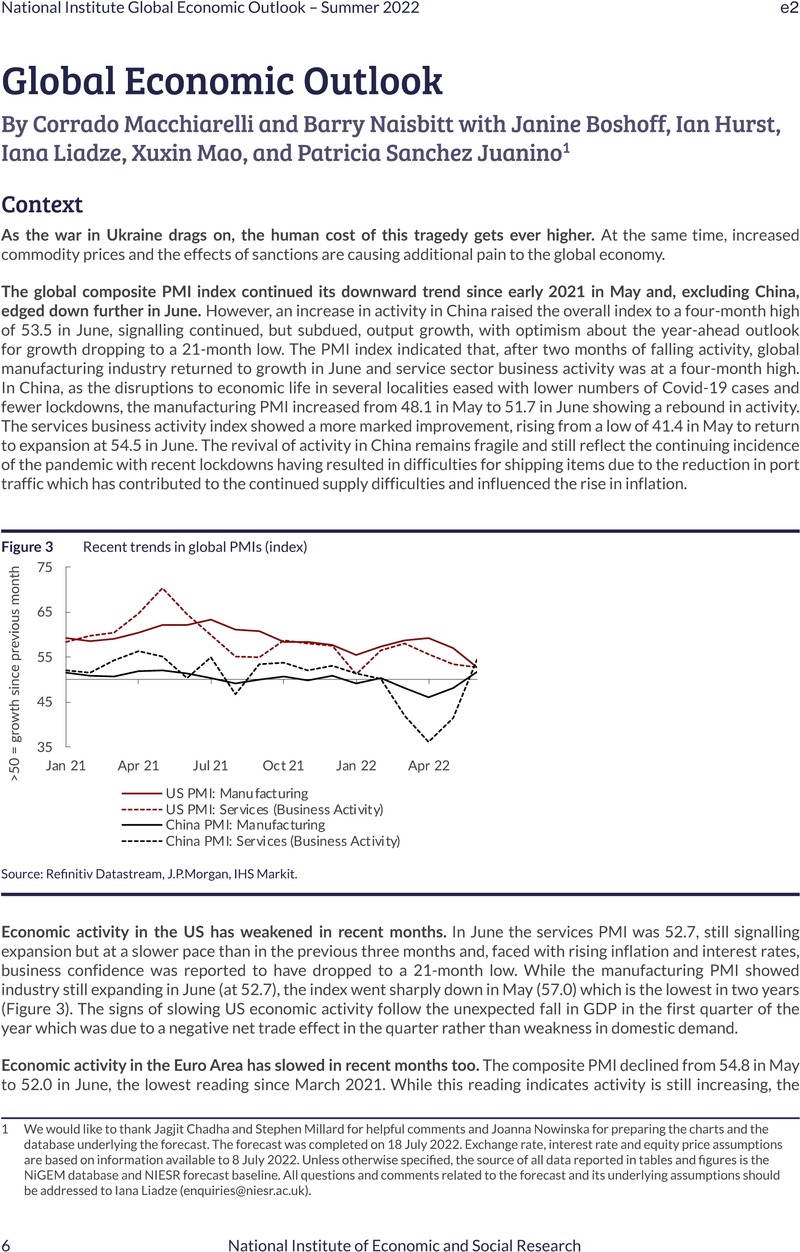No CrossRef data available.
Article contents
Global Economic Outlook
Published online by Cambridge University Press: 08 February 2023
Abstract

- Type
- World Forecast
- Information
- Copyright
- © The Author(s), 2023. Published by Cambridge University Press on behalf of National Institute Economic Review
Footnotes
We would like to thank Jagjit Chadha and Stephen Millard for helpful comments and Joanna Nowinska for preparing the charts and the database underlying the forecast. The forecast was completed on 18 July 2022. Exchange rate, interest rate and equity price assumptions are based on information available to 8 July 2022. Unless otherwise specified, the source of all data reported in tables and figures is the NiGEM database and NIESR forecast baseline. All questions and comments related to the forecast and its underlying assumptions should be addressed to Iana Liadze (enquiries@niesr.ac.uk).


